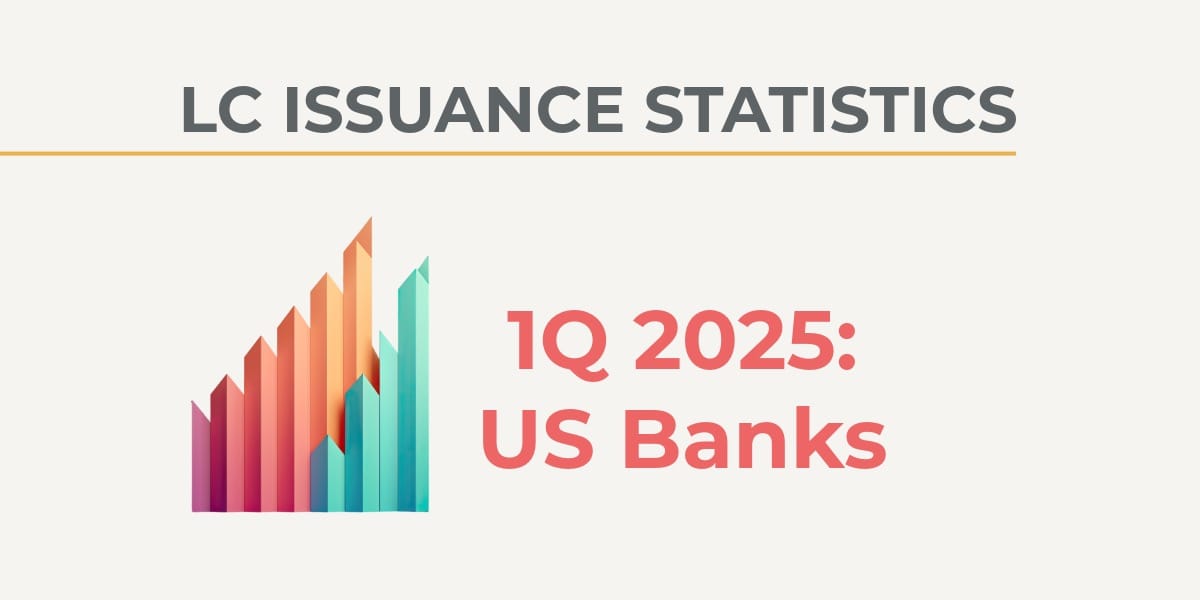DCW Monthly: January 2026
We start 2026 with a focus on how courts, technology, and compliance realities are testing frameworks that were largely built

This month we’re digging into the legal, operational, and regulatory tensions at the core of LC and guarantee practice.
In Bintai v. Samsung C&T, the Singapore Court of Appeal confirmed that contract terms can block even serious fraud or unfairness claims from stopping payment under a performance bond. In London, a UK High Court ruling has major implications for war risk insurance, holding insurers liable for aircraft stranded in Russia.
We also cover ICC’s revision of Opinion TA930rev to reflect updated sanctions guidance, alongside a critique of TA.948 by Rupnarayan Bose, who challenges the Banking Commission’s reading of endorsement and issuance principles under bills of exchange law.
On the operational front, Pete DelGrosso explains why routine standby issuance still generates hesitation, and how standardized forms might help. Abdurrahman Özalp’s case study examines how a confirming bank ended up paying twice under a transferable LC—and what went wrong.
Also inside: updated LC issuance data from the top 600 U.S. banks, and the LC Scam Survey roundup from Indonesia, India, and New York.
Let’s get into it.


In a dispute over a SGD 4.3 million bank guarantee issued by DBS, the Singapore Court of Appeal upheld a beneficiary’s demand despite claims of fraud and unconscionability. The subcontractor, Bintai Kindenko, sought an injunction to block payment after a demand by Samsung C&T—but exclusion clauses incorporated by reference proved decisive. The Court found no strong prima facie case of fraud, confirmed the enforceability of the exclusion clauses, and clarified that even arguments of unconscionability may be precluded in such performance bond arrangements.
A commercial landlord prevailed in a New York summary judgment action over unpaid rent backed by a USD 449k letter of credit. The lessee’s failure to cure drawdown shortfalls and pandemic-based defenses were rejected, with the court awarding over USD 2 million in rent and interest. No practice rules were cited for the credit.
In case you missed it:
DCW subscribers can now access The Banker’s Guide to Examination under Documentary Credits—a practical resource for document checkers co-authored by A.T.M. Nesarul Hoque and Kim Sindberg.
Also new: soon you'll earn CPD credits toward certifications like CDCS and CSDG by engaging with select DCW content. Details coming soon.

Drawing on decades in bank operations, Pete DelGrosso reflects on why standby LCs still generate hesitation — and how over-customization, limited training, and legal escalation are slowing down routine issuance. His experience points to a need for simpler, standardized tools that support both operations teams and clients.
-Peter DelGrosso
Rupnarayan Bose takes a closer look at ICC Opinion TA.948, arguing that the Banking Commission’s analysis overlooks key principles of bills of exchange law. From questions of endorsement to the very definition of issuance, the piece highlights tensions between UCP rules and underlying legal frameworks still binding in many jurisdictions.
Abdurrahman Özalp’s case study highlights how flawed procedures and deceptive coordination around a transferable LC led one bank to honor two separate presentations — and absorb the loss. A cautionary look at expiry dates, Article 29, and the risks of blind spots in trade finance operations.
-Abdurrahman Özalp

LC issuance by the numbers. This latest quarterly snapshot delivers comprehensive LC issuance statistics for 1Q 2025 from the top 600 US-based banks. The data tracks net financial and performance standbys, commercial LCs, and total LC issuance — providing a critical view into current market activity and trends.
View 1Q2025 US LC Issuance Stats
Bank Woori Saudara is conducting an internal investigation after identifying potential fraud linked to a USD 78.5 million letter of credit presented by an Indonesian exporter. The LC—described as having features of an export payment guarantee—triggered red flags under internal controls. The bank is reviewing the actual loss value.
Authorities in India arrested a Singapore citizen in connection with a timber import deal involving fictitious bills of lading and fraudulent documents presented under a letter of credit. The cargo never arrived, and INR 10 crore (USD 1.18 million) was released based on documents later found to be fake. Investigations are ongoing.
A disbarred attorney posing as CCO of Dominion Bank & Trust Co. pleaded guilty to wire fraud after defrauding over USD 4 million from victims in an advance fee scheme involving sham standby letters of credit. The New York-based operation falsely claimed billions in assets while charging clients fees for worthless instruments.
As always, thanks for reading. Stay tuned for more editorial, legal, and compliance updates this month. If you have colleagues who you think would benefit from DCW access, reply to this email to let us know.
Paid subscribers enjoy full access to expert case summaries, practical eBooks, editorial insights—and CPD credit on select content. Stay current. Subscribe today.
Email us to find the right subscription for you.
Gain full access to analysis, cases, eBooks and more with a DCW Free Trial